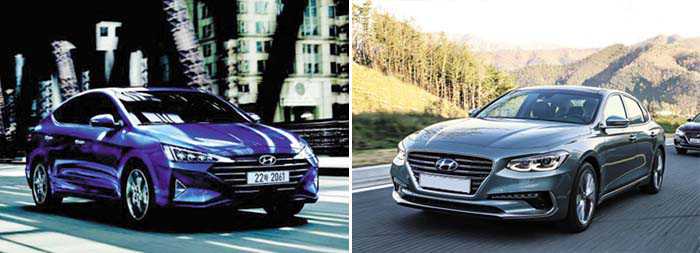Slump Grips Car Industry
28 November, 2019

The Korean car market is suffering from slump due to dire economic straits and expanding ride-sharing services, and only the rich are buying big cars.
According to the Korea Automobile Manufacturers Association, car sales in Korea peaked at 1.65 million in 2015, but fell to 1.58 million in 2017. Although they rose again to 1.61 million last year, they are projected to fall again this year.
Cumulative sales from January to September this year stood at only 1.15 million cars, down two percent compared to the same period of last year. The biggest reason for the decline in sales is an increasing reluctance among younger consumers to buy their own cars.
As recently as 2010, people in their 30s were the biggest buyers of cars in Korea with 24.4 percent, but that demographic proportion plunged to 17.4 percent in 2018 and even further to 15.4 percent in the first half of this year, behind those in their 40s and 50s.
Purchases by those in their 40s also dropped from 21.3 percent of all vehicle buyers in 2010 to 18.7 percent in the first six months of this year. The proportion of buyers in their 20s plunged even more sharply from 12.2 percent to 6.6 percent over the period. Now people in their 50s are the biggest buyers with 19.7 percent.
Kim Pil-soo at Daelim University said, "High unemployment among young Koreans and soaring home prices have prevented consumers in their 20s from buying cars, while the key consumers are not buying new ones."
But if people do buy cars they want them big. Sales of subcompacts, which used to be favored as started cars, and midsize cars usually chosen by consumers in their 30s, have steadily declined, while sales of large sedans are increasing.
Sales of Hyundai's Avante compact, which had been one of the most popular entry cars, halved from 140,000 in 2010 to 70,000 last year. Sales of its midsize Sonata sedan also declined by more than half over the same period. Hyundai has already stopped producing the subcompact Accent in the second half of this year.
Automakers have bolstered their small SUV lineups to lure consumers in their 20s and 30s, but have largely been unsuccessful. Total sales of compacts and small to midsize cars here dropped from 1.01 million in 2015 to 860,000 last year. But over the same period, sales of midsize-to-large sedans rose from 310,000 to 430,000 vehicles.
The same polarization has been seen among brands. As Hyundai ensnared most new buyers of domestic cars, GM, Ssangyong and Renault Samsung suffered plummeting sales. Among imports, only Mercedes-Benz saw sales increase.
Lee Hang-koo at the Korea Institute for Industrial Economics and Trade, said, "The purchasing power of low-income earners is weakening while car prices have surged, resulting in sales of only large, luxury vehicles favored by the wealthy."
Source:
